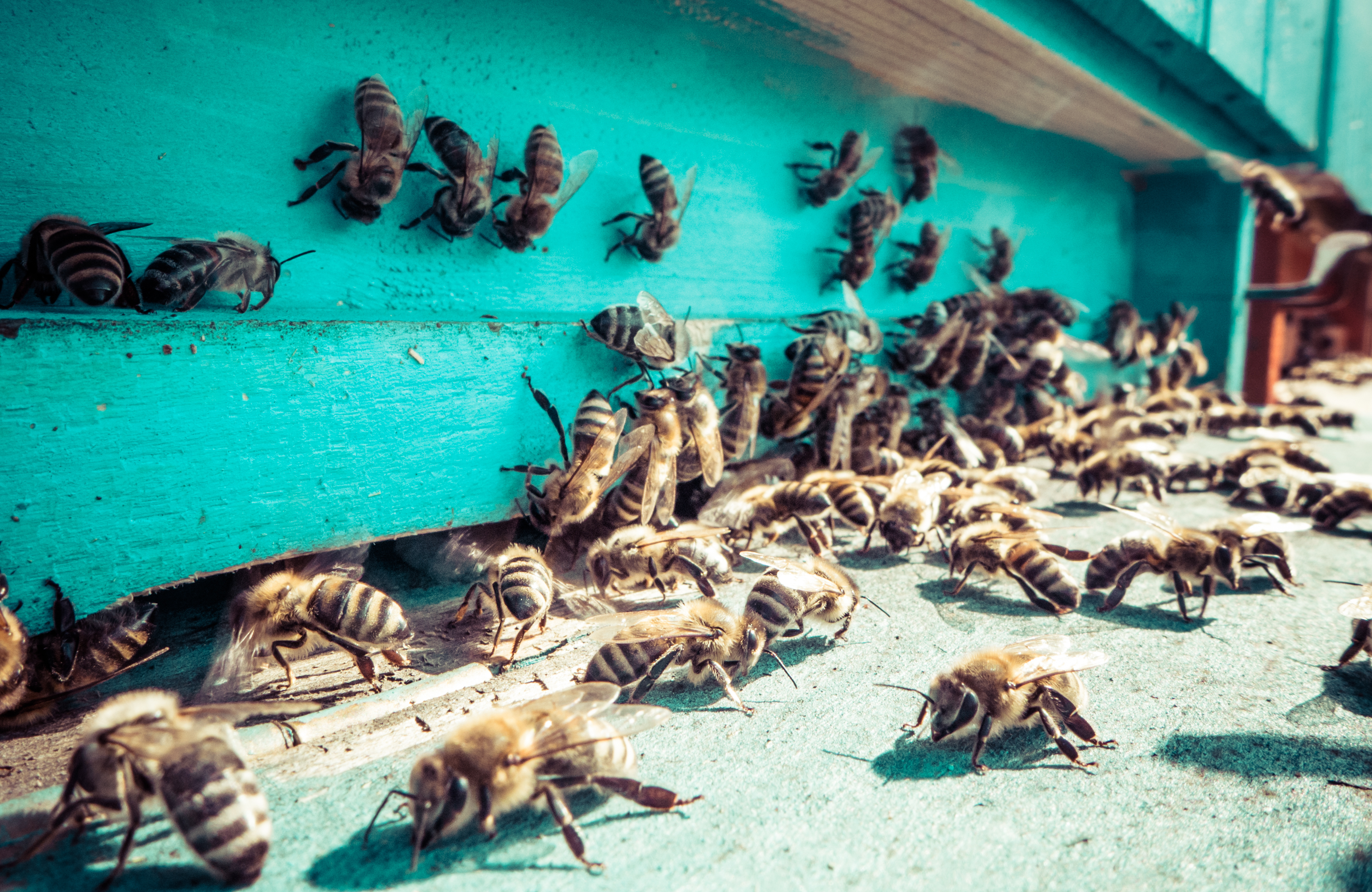Commercial apiary management service The Bee Corp has raised an undisclosed Series A round led by angel investor Jane Martin, formerly of Village Ventures. Elevate Ventures, angel investor Scott Dorsey of High Alpha Ventures, and other individuals, along with one of Bee Corp’s larger customers also participated in the round.
Last year, The Bee Corp won a $100k investment from the founders’ alma mater, Indiana University in a science and technology entrepreneurship competition founded by Scott Dorsey.
The Bee Corp develops decision support software that monitors conditions inside commercial beehives, focusing on utilizing commoditized IoT sensors and data science. The product they currently sell is a queen monitoring service that uses hive temperature to tell when a queen bee has died within hours. The death of queens is one major cause of hive collapse, since bees no longer go about the work of maintaining a hive when no more eggs are being laid. When this happens, the temperature in a hive drops due to the decreased activity level.
“Our algorithm is able to alert the beekeeper within a couple hours and we’re working on making it more predictive,” said Ellie Symes, CEO of The Bee Corp. “A lot of our customers have 50-200 hives and care about the revenue they’re getting from honey.”
With that many hives, it can takes days for a beekeeper to realize that a queen has died, which is often too late to introduce a new queen. According to Symes the decrease in that detection time is The Bee Corp’s main offering.
Symes was inspired to start her business when she, a hobbyist beekeeper for Indiana University, was having problems with her own queen health.
Next, her team is looking to expand beyond queen monitoring to precisely correlate temperature and moisture changes in hives with other threats. Currently, they are working on detecting pests and diseases using weight, humidity, temperature, acoustics, and CO2 levels inside the hive.
Bee Corp has a partnership with one of the largest beehive sensor companies, Broodminder, which has allowed them to gain access to the temperature, weight, and humidity data as well as zip code for 4,000 hives.
Hive loss in the US has been steadily increasing for decades. According to a 2014 fact sheet put out by the White House press office, the US has been losing 30% of its bee hives every winter in recent years, compared to loss rates of 10-15% historically.
American beehives have gone from 6 million in 1947 to 2.1 million in 2014 and the White House warned that colony collapse could threaten American agriculture. “Given the heavy dependence of certain crops on commercial pollination, reduced honey bee populations pose a real threat to domestic agriculture.”
According to the report, the value of bees’ contribution to the US economy is around $24 billion.
“We can’t let this go down much further. Industries don’t face 40% loss and then just shrug their shoulders,” said Symes.
The USDA agricultural research service lists the main causes of hive collapse as parasites and pests, pathogens, poor nutrition, and sublethal exposure to pesticides.
The new funds will go toward building out an interface that will allow beekeepers to share more contextual information — right now the service is only via text message — and eventually more data-based monitoring and decision support products and services. Though Symes says that her customers are satisfied with the simplicity of a text alert.
The Bee Corp is a benefit corporation (BCorp) meaning it scores across a range of metrics regarding how its business is conducted including governance, workers, community, and the environment.
“While I am making this investment on profit fundamentals, I’m equally gratified that it may improve America’s food security, thus a double bottom line,” said Jane Martin, general partner at Village Ventures and lead investor in the Series A funding round.
Elevate Ventures is also invested in pest detection technology company Spensa, and online farmers market Market Wagon.





